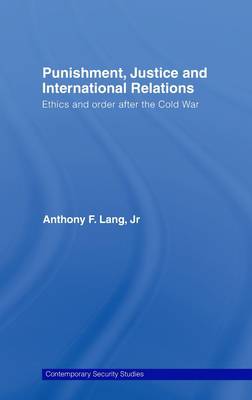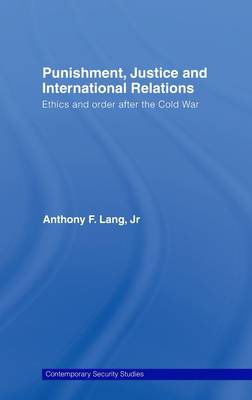
- Retrait gratuit dans votre magasin Club
- 7.000.000 titres dans notre catalogue
- Payer en toute sécurité
- Toujours un magasin près de chez vous
- Retrait gratuit dans votre magasin Club
- 7.000.0000 titres dans notre catalogue
- Payer en toute sécurité
- Toujours un magasin près de chez vous
Punishment, Justice and International Relations
Ethics and Order After the Cold War
Anthony F Lang JrDescription
This book examines the international political order in the post-Cold War era, arguing that this order has become progressively more punitive. This is seen as resulting from both a human-rights regime that emphasizes legal norms and the aggressive policies of the United States and its allies in the 'War on Terror'. While punishment can play a key role in creating justice in a political system, serious flaws in the current global order militate against punishment-enforcing global norms. The book argues for the necessary presence of three key concepts - justice, authority and agency - if punishment is to function effectively, and explores four practices in the current international system: intervention, sanctions, counter- terrorism policy, and war crimes tribunals. It concludes by suggesting ways to revise the current global political structure in order to enable punitive practices to play a more central role in creating a just world order. This book will be of much interest to students of International Law, Political Science and International Relations.
Spécifications
Parties prenantes
- Auteur(s) :
- Editeur:
Contenu
- Nombre de pages :
- 192
- Langue:
- Anglais
- Collection :
Caractéristiques
- EAN:
- 9780415439077
- Date de parution :
- 01-06-08
- Format:
- Livre relié
- Format numérique:
- Genaaid
- Dimensions :
- 156 mm x 234 mm
- Poids :
- 467 g

Les avis
Nous publions uniquement les avis qui respectent les conditions requises. Consultez nos conditions pour les avis.






